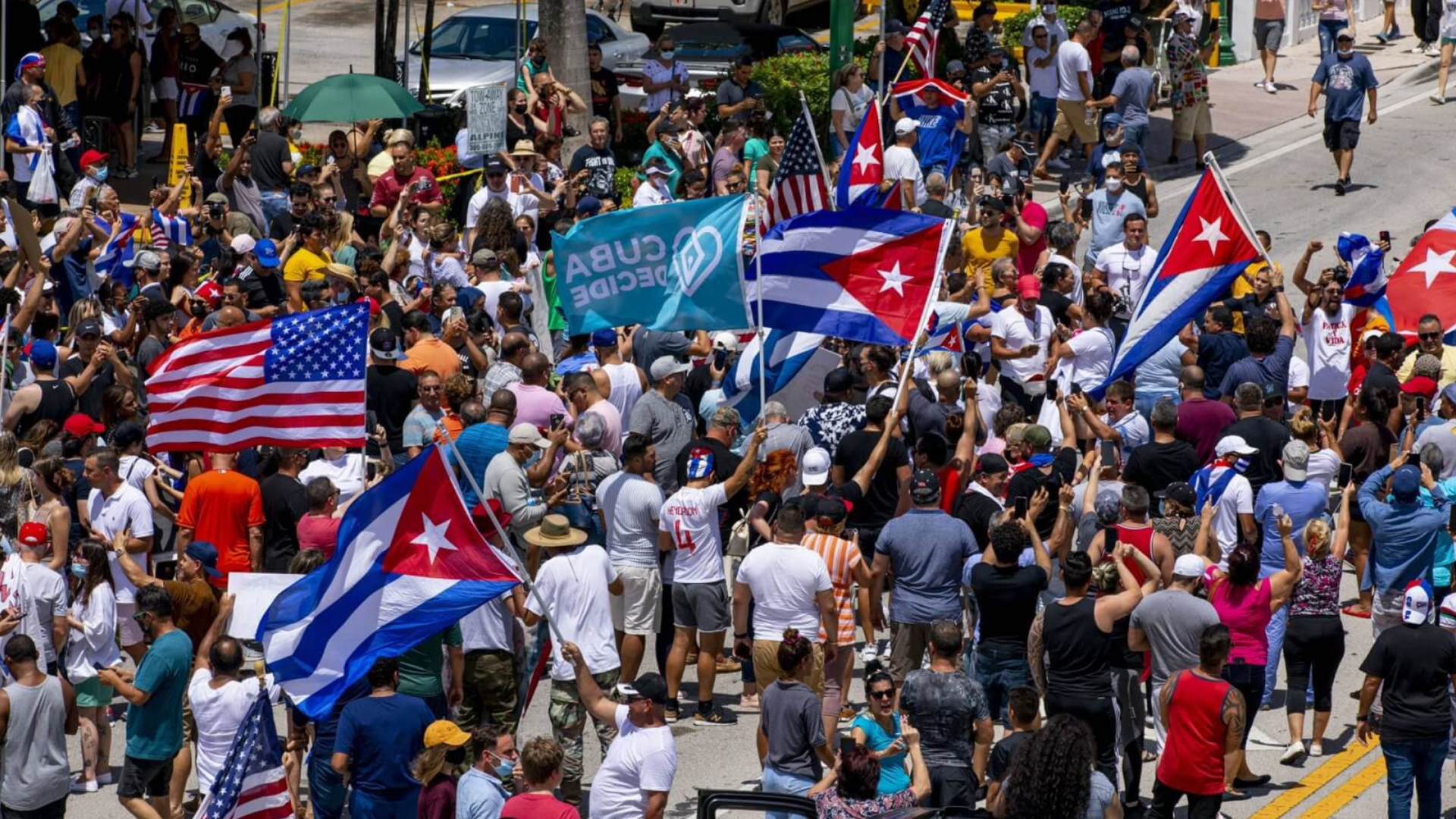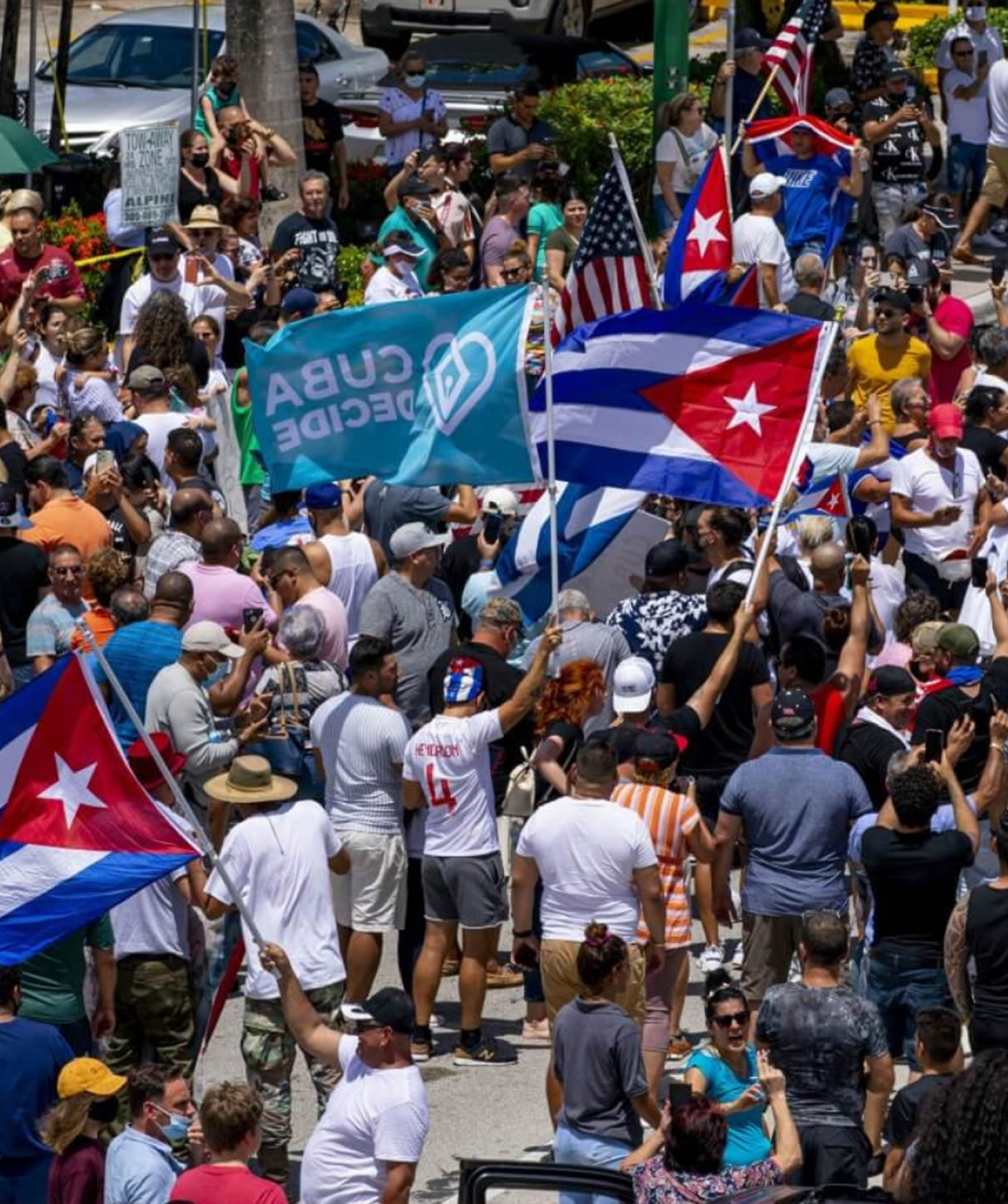

By Álvaro Piaggio
One year ago today, the Cuban people took to the streets in a brave and rare act of defiance of the dictatorship that has ruled the island with an iron fist for over six decades. It started with a small demonstration in the town of San Antonio de los Baños, as the country was being ravaged by COVID-19, an acute economic crisis, and a regime that was more interested in aggressively silencing artists and other dissidents than addressing the basic needs of its citizens. News of the brave acts of the Cubans in San Antonio quickly spread to the rest of the country through social media, and the initially small demonstrations became the largest anti-regime protests the country had seen since thousands of people took over the Malecón in 1994. Chants of “Freedom,” “Down with the dictatorship,” “Down with Communism,” and “Patria y Vida” were heard not only from crowds in Havana, but also from every major town and city in the country, from Santiago de Cuba to Pinar del Río.
Tragically, but unsurprisingly, the protestors were met with brutal repression and criminalization, and dictator Miguel Díaz-Canel even went as far as calling for violence against demonstrators, urging the regime’s supporters to fight in the streets to “defend the revolution.” In a clear demonstration of how tightly military and police repression is organized in totalitarian Cuba, nearly every single high-profile artist, journalist, or dissident was arrested, harassed, or prevented from leaving their homes that day. Among those arrested was Luis Manuel Otero Alcántara, the leader of the influential San Isidro Movement, an art collective that gained prominence in recent years for opposing the regime’s ironclad restrictions on freedom of expression and inspiring civil society with their collaboration in the hit song Patria y Vida, which became an anthem for those protesting that day.
More than a thousand other people were arrested in connection with these demonstrations, some simply for reporting on them on social media, many of them as young as 17. Earlier this year, after being held arbitrarily for months, 381 of the protesters were tried by kangaroo courts and sentenced to up to 25 years in prison. Just two weeks ago, Otero Alcántara himself was sentenced to 5 years in prison. His only “crime” was to announce he was joining the protests in Havana: his last words on social media were “We’ve had enough of political prisoners. We want democracy. I am on my way to the Malecón.”
Another concerning aftermath of this massive wave of repression and the utter failure of the Communist regime to provide its citizens even a modicum of relief from its self-inflicted economic wounds is the record number of Cubans that are risking everything to leave the island. United States officials have reported that more than 70,000 people from Cuba have arrived at its Southern Border, and they are now predicting that this number will rise to more than 150,000 by the end of the year — 25,000 more than those who arrived in 1980 during the Mariel boatlift. Since the vast majority of these people are arriving on foot via Nicaragua, it puts them at a high risk of becoming victims of violence and human trafficking along the treacherous route through Central America and Mexico.
Díaz-Canel and his regime have shown little remorse for these egregious abuses and the democratic world must take a firm stance against them. Members of the military, Cuban state security forces, and all those responsible for the human rights abuses that have taken place since July 11 of last year, including members of the still-influential Castro family, need to be sanctioned. Any attempts to establish renewed diplomatic or economic ties with the regime need to be conditioned on the release of political prisoners and even the eventual restoration of democracy.
For decades, democratic countries in Europe and Latin America, and more recently — although briefly — the United States, have traded and engaged with the Castros and its hand-picked successor, sometimes with the hopes that this engagement would eventually lead to the regime abandoning its complete control over Cuban society. The Communist Party has made it clear it has no plans to do so. We must stand squarely behind the Cubans who are clamoring for a democratic transition and make this clear to Díaz-Canel and his cronies.
One year ago, Cubans let the world know that even after more than six decades, their dreams of freedom are still very much alive. We cannot forget their sacrifices and let their voices be forgotten.
Hit enter to search or ESC to close